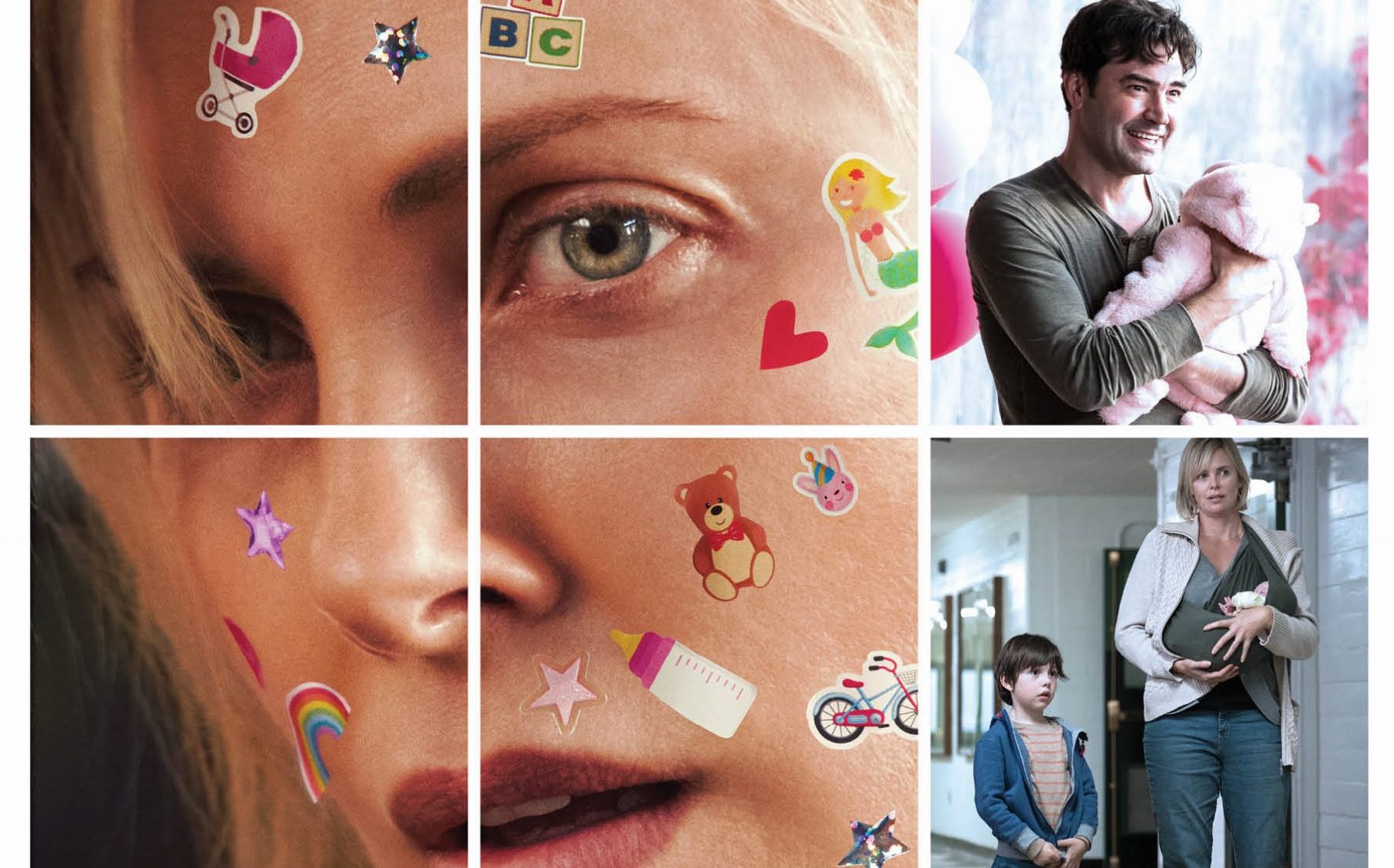By Neville Kurniawan
Motherhood is an integral aspect of life which is often glossed over within film. There exist only a handful that foreground mothers and the foreign market is home to the most effectual (Bong Joon Ho’s Mother, Mamoru Hosoda’s Wolf Children). So, it’s refreshing to see this done within the States, especially with a big star like Charlize Theron. But does Tully represent motherhood well? Depends on what you’re looking for.
This is the third collaboration between director Jason Reitman and writer Diablo Cody, who previously made Juno and Young Adult together. They tend to make charming yet honest portrayals of family, and Tully does just that. The two manage to incorporate some true artistic flare to the filmmaking by putting in abstract choices that might be jarring for an audience accustomed to generic Hollywood rom-coms.
Diablo Cody wrote the script when she just had her third child – just like Theron’s character, Marlo, in the film. You can tell this was a personal film to Cody as the dialogue is just short, sweet and hilarious. This may not be an all-out comedy, but Cody’s characters are made far more complex than your average comedy, making up for the lack of laughs. In return, you feel for these characters on screen, Marlo especially.
Theron shines in this role as a stressed mother whose only dream is just to have a good night’s rest. She’s stuck having to take care of three children – the eldest the most contained; the middle child extremely difficult at home and school; and the youngest being just born, in constant need of her mother – without the help of her husband who is constantly gaming in their bedroom. Having to portray a mother who must take care of three children without the help of her husband, Theron must convey such restless expressions and aggravated body motions, and she absolutely does it brilliantly.
Then comes Tully, the realistic reincarnation of Mary Poppins this side of the 21st century. Mackenzie Davis (Blade Runner 2049) plays the titular Tully and she steals every scene. Her presence alone can bring up the energy of a scene significantly, especially when she shares them with Theron.
The only problem to be had with this film is that you wish it were longer. The love you have for these characters is so tangible it’ll follow you out of the cinema. And like all good pieces of art, this love translates and manifests itself within each viewer’s own unique experiences with family and motherhood.


